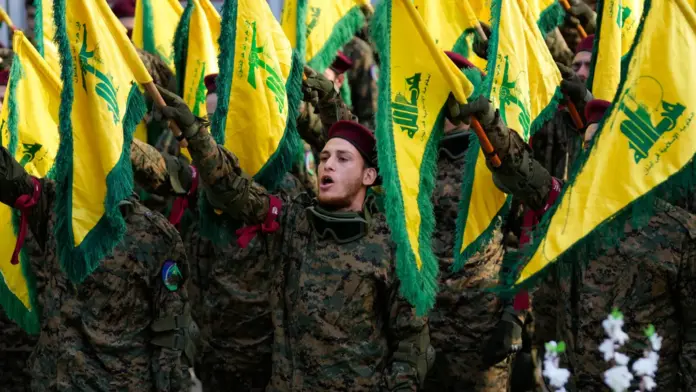Lebanon is preparing to do what was once unthinkable: strip Hezbollah of its weapons. Ostensibly in the name of state sovereignty, the move is driven by Washington and coincides, unsurprisingly, with a weakening of the pro-Iranian militia. Behind the technocratic language lies a fragile state being ushered into a confrontation it may not survive.
U.S. diktats masquerading as diplomacy
On Tuesday, August 5th, Lebanon’s government, under President Joseph Aoun, tasked the national army with drafting a plan for disarming Hezbollah by year’s end. The official reasoning? To ensure that only the state holds arms. The real story, however, reads more like a pressure memo from Foggy Bottom.
U.S. envoy Tom Barrack has been unusually direct, demanding swift action to “immediately” implement Lebanon’s commitments under the November 2024 ceasefire. The message is clear: Hezbollah must be neutralised, preferably without a fight, and preferably now.
But Lebanon is not a chessboard, and Hezbollah, for all its sins, is not a pawn.
Hezbollah stands defiant, Israel keeps bombing
In a televised address aired as the cabinet convened, Hezbollah’s deputy leader, Naïm Qassem, dismissed the idea of surrender under foreign fire. “Do they want a discussion or simply our weapons handed over without debate?” he asked, with rhetorical scorn. His refusal to accept any “imposed timetable” underscores the central dilemma: how can Hezbollah disarm while Israeli jets continue pounding Lebanese territory?
Qassem’s stance is strategic as much as ideological. Hezbollah demands clear concessions first: a withdrawal from five contested Israeli-held positions in southern Lebanon, a halt to airstrikes, and a serious post-war reconstruction plan. In short, no disarmament without reciprocity.
The disarmament plan: official deadlines, unofficial doubts
Prime Minister Nawaf Salam, ever the moderate technocrat, announced that the army would submit its disarmament plan by August 31. The framework draws on the November 2024 ceasefire agreement, which limits armed power to six state entities. But this legal fiction crumbles under the weight of reality: neither the Internal Security Forces nor the General Security Directorate can enforce this mandate in Hezbollah’s strongholds in the south and the Bekaa.
Notably, two ministers, Tamara Zein (Amal Movement) and Rakan Nasreddine (Hezbollah), walked out of the cabinet meeting in protest. This is not political theatre; it signals a deeper schism within the state. The government may pass the law, but it cannot implement it.
Between Washington and the Resistance: a state at the edge
Lebanon is once again trapped in its favourite nightmare: a fractured state, manipulated by foreign powers, unable to assert authority without triggering internal collapse. And yet, Western capitals remain eerily silent, as if Lebanon’s sovereignty matters only when aligned with NATO interests.
The silence is telling. Europe, which frets endlessly about “international law” in other contexts, now passively supports a plan that risks civil unrest, if not outright civil war. The U.S. gets what it wants: an enfeebled Hezbollah, a compliant Lebanese army, and Israel free to operate with minimal resistance.
But on the ground, the signs say otherwise. Credit default swaps are rising. Iranian officials are issuing vague warnings about defending “Shiite populations.” UNIFIL is quietly expanding its mandate. Disarming Hezbollah is not a peace plan. It’s a prelude to confrontation.
Sovereignty, if Washington allows it
The real danger lies in the illusion: that disarming Hezbollah will restore order. In truth, it may rupture what little balance remains. A state that subcontracts its sovereignty to foreign powers cannot credibly claim a monopoly on arms.
The question is not whether Hezbollah should be disarmed, it’s whether Lebanon can afford the cost of doing so on America’s terms.
Until there is a genuine internal consensus, until Israeli provocations cease, and until the Lebanese state regains its legitimacy beyond Christian enclaves and Sunni ministries, this project will remain just that: an illusion of sovereignty, signed off in Washington, paid for in Beirut.



